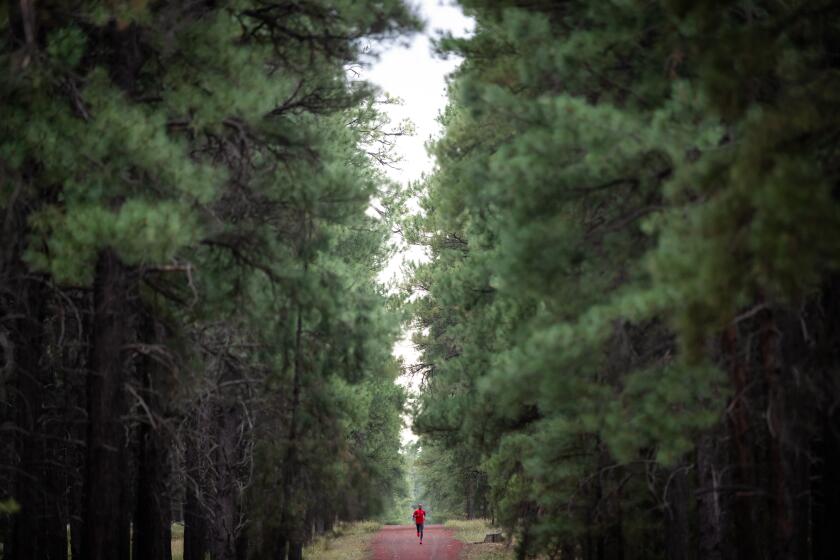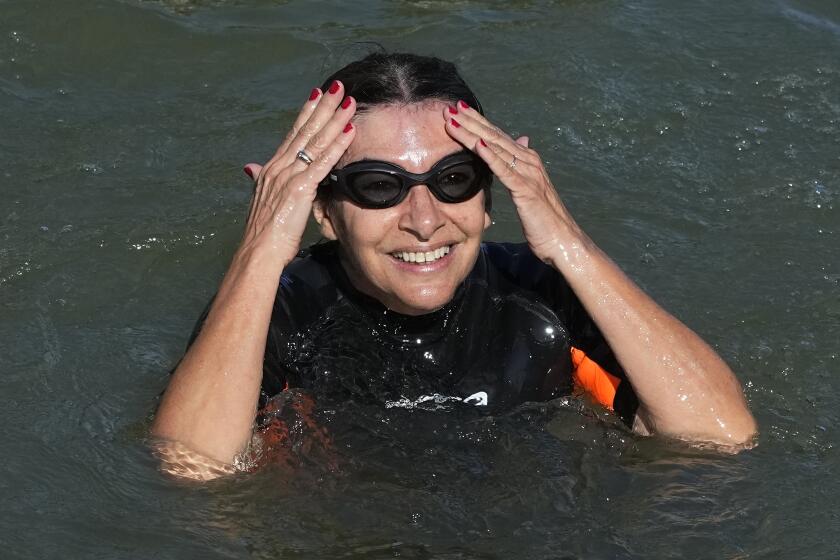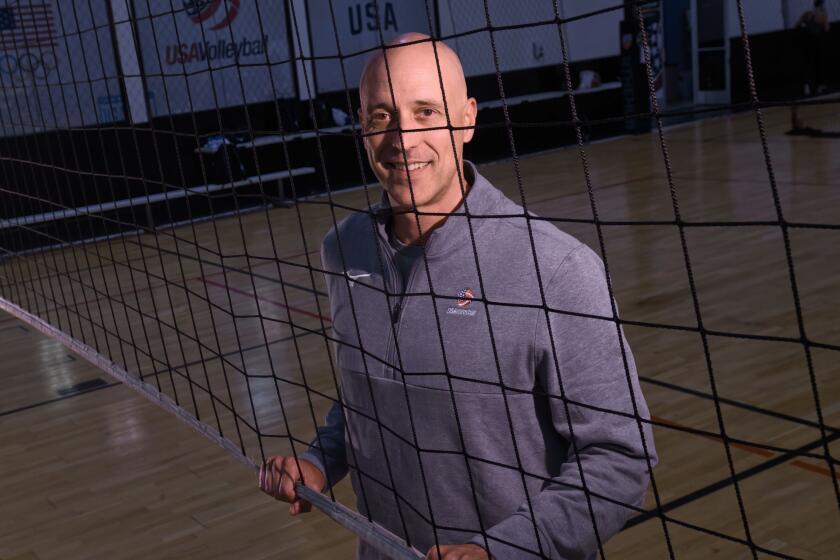Lack of Competition Here Continues to Foil Her : Top American Fencer Elaine Cheris Would Like to Challenge to the Europeans
Elaine Cheris, the top U.S. woman fencer at the end of the 1985 season, gently massaged a damaged muscle in her right thigh and wondered if at age 39 she can remain No. 1.
“It was 10 years ago almost to the day that I won my first major meet,” she said. “It was in New York, and I had been fencing less than a year. I was picking them (the victories) up--4-2, 4-1--and it suddenly dawned on me. I was going to win!”
But the circuit victories come harder these days. Last July, in the world championships in Barcelona, she did not fence well.
“I had had a miscarriage earlier, in Italy, and while I seemed to be up physically, I just didn’t have it, competitively, up here,” she said, tapping her forehead.
“I won two and lost three in the first round. It just wasn’t there.”
Now Cheris must prepare herself physically and mentally for international competition in Germany next month. It is no easy task for an athlete without a coach or challenging competition.
That is a problem Americans have with “foreign” sports, but gifted athletes have overcome that problem and so has Elaine Cheris.
At 5-8 and 119 pounds, she has what CBS Sports commentator John Madden likes to call “linebacker eyes”--fierce and intent--and she is cobra-quick with her 17-ounce French foil blade.
That quickness built 1,170 points in U.S. Fencing Association circuit events in 1985.
Her closest competitor, Sharon Monplaisir of New York, was second with 882. Close behind was Jana Angelakis of Penn State with 874, followed by Caitlin Bilodeau of Columbia University with 852 points and Lisa Piazza of New York with 750.
Then there are the Europeans.
West Germany’s Cornelia Hanisch is world champion, and the runner-up is another West German, Sabine Bischoff. Behind them in the world standings are Anna Sparacciari of Italy, Pascal Hachin of France and Gertrude Stefanek of Hungary.
They have fenced competitively since childhood, as did former world champion Valentina Sidorova of the Soviet Union, who retired last year.
“She gave it up after being world champion a number of times. She signed her fencing glove, ‘Best of luck in fencing and in life,’ and handed it to me. She said she loved fencing, but she loved her baby and her husband, too.”
Cheris is married to Samuel Cheris, a Denver lawyer and amateur fencer.
Cheris, who competed on the men’s track team at Troy State in Alabama, didn’t touch a fencing foil until she was 29.
After learning basic and advanced techniques from her first coach, Uriah Jones, a former national champion, she moved on to Yale, where she taught swimming and continued to work on her fencing.
A department director, Joni Barnett, granted her a leave of absence to prepare for Olympic competition in 1980.
“But I still had no coach. That’s when I came to Denver. The National Sports Festival was in Colorado Springs, and through my future husband I found Mel North. He was a fine coach who had a way of bringing out the best in me,” she said.
Cheris made the U.S. fencing team, but never got a chance to compete at the 1980 Moscow Olympics because of the U.S. boycott over Afghanistan.
In 1984 came another disappointment--she failed to make the U.S. team.
“I tried too hard. I was in the best shape I had ever been in. But I didn’t have a coach, and that added to the pressure.
“I haven’t had a coach in 3 1/2 to four years. People would drop in from time to time, but . . . there was no real valid training program at Colorado Springs. If they had one I would be there every day.”
A lack of regular training and a coach is a handicap for U.S. fencers, she believes.
“A different idea, a different technique every two years . . . it doesn’t work.”
Carla-Mae Richards, executive director of the U.S. Fencing Association, agrees that better training and European competition are needed.
“Our fencers don’t have enough exposure internationally. If they go over one or two times, that is not enough time to learn how to beat the Europeans.”
Cheris and Richards both think the sport needs television support and more exposure in public schools and in colleges. Cheris currently is doing fencing exhibitions, and from her fencing academy in Denver she has helped promote young fencers in regional competition.
One again, she will try to make the U.S. Olympic team--this time for the 1988 Summer Games in Seoul, South Korea.
“I think I’ve got about 10 more years left in this body,” she said. “I’ll be ready.”
More to Read
Go beyond the scoreboard
Get the latest on L.A.'s teams in the daily Sports Report newsletter.
You may occasionally receive promotional content from the Los Angeles Times.





